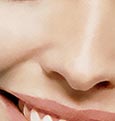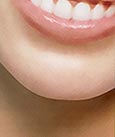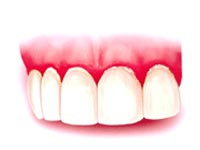 |
|
Non-Surgical
- Oral Hygiene
- Dental Prophylaxis
- Scaling
- Root Planing







Periodontal disease is more commonly known as gum disease and was referred to as pyorrhea in the old days. It is a progressive inflammatory disease of the gingival and the surrounding tissue (bone) around the teeth. Periodontal disease is the number one cause of tooth loss after the age of 30 and it is believed that around 80% of the population above the age of 30 may suffer from this disease, with varying degrees of severity. It is usually painless and is mainly caused by plaque although pregnancy, diabetes, epilepsy, and such medications as chemotherapy, medication prescribed for heart problems, birth control pills, and antidepressants can all make you more susceptible to gingivitis which is one of the more common forms of periodontal disease.
Treatment will depend upon the type of periodontal disease and how far the condition has progressed.
Surgical
- Crown Lengthening
- Periodontal Flap Surgery
- Soft Tissue Grafts
- Bone or Gingival Augmentation
- Gingival Curettage
- Gingivectomy
- Gingivoplasty
There are many forms and stages of periodontal disease. The most common are:
Gingivitis
The first stage of periodontal disease, gingivitis, is the mild inflammation of the gingival caused by plaque build up. Your gingival will be red, swollen, and tender. You may also notice bleeding while you brush and floss. This stage of periodontitis is reversible.
Mild Periodontitis
Inflammation will spread to the supporting alveolar bone. Minor bone loss and the formation of periodontal pockets, or food traps, may occur.
Moderate Periodontitis
In this stage, there will be increased gingival recession, moderate to deep pockets, moderate to severe bone loss, and mobility of teeth due to the bone loss.
Severe Periodontitis
This is the most serious stage of periodontitis. Deep pockets, increased mobility of teeth, movement of teeth out of position, and visible fistulas (boils) will be present in this stage. Pus may develop; bone loss continues, and your teeth may loosen or fall out.




Missing Tooth and Receding Gum Tissue
Diagnosis
To diagnose periodontal disease, the doctor will evaluate several things :

-
Color and condition of the gum line
-
Pocket depth measurements
-
Bone line as revealed by x-rays
-
Mobility of teeth
-
Amount of calculus
These findings determine the periodontal stage and therefore determine the appropriate treatment plans.
Treatments
Our dentist will examine you for periodontal disease during each routine checkup. A periodontal probe will be used to determine if there is any breakdown in the gum tissue and attachment or if pockets have developed between your gums and teeth.
|
Prevention The best way to prevent periodontal disease and tooth decay is to maintain good oral health care. Brushing your teeth every day will remove a thin sticky film of bacteria, called plaque that grows on your teeth. Cleaning between the teeth once a day with floss removes plaque from between the teeth - areas where the toothbrush can't reach. Brushing and flossing are essential in preventing gum disease. Brush your teeth twice a day, with a soft-bristled brush. Use a formula of toothpaste that contains fluoride, which helps protect your teeth from decay. It is also advisable to seek regular dental visits that include a periodontal evaluation. Pre - and Post - Operative Care In most cases, the gums are too tender to brush post-operatively. We will provide you with an antibacterial rinse called chlorhexidine which will chemically reach those areas that the tooth brush will be too sensitive to debride. Warm salt water will help to reduce gum inflammation and an antibiotic is usually prescribed to prevent infection. Analgesics (pain medication) can be used if the pain becomes severe. It is essential for your dentist to monitor your progress and a series of appointments will be scheduled at three month intervals. |
|||
| Page 1 l 2 l 3 l 4 l 5 l 6 l 7 |
|
|
|
HOME
l SERVICE
l DENTISTS
l TECHNOLOGY
l FACILITIES
l ABOUT US
l SITE MAP
PROMOTION
l PRICE&DURATION
l CONSULTATION
l FAQ
l LINKS
l MAP
l TESTIMONIALS
l OUR LAB
l RESOURCES
DENTAL BRACES
l LASER TEETH WHITENING
l IMPLANT DENTISTRY
l ENDODONTICS
l OPERATIVE DENTISTRY
l SEDATION DENTISTRY
COSMETIC DENTISTRY
l PROSTHODONTICS
l PERIODONTICS
l ORAL SURGERY
l PAEDODONTICS
l GP & ORAL EXAM
l OCCLUSION
DENTAL OFFICE
l DENTAL CLINIC
l COSMETIC DENTISTRY
l COSMETIC DENTIST
l TEETH BLEACHING
l TOOTH WHITENING
DENTAL CROWNS
l DENTAL IMPLANTS
l DENTAL TREATMENT
l DENTAL IMPLANT
............................................................................................................................. Copyright© 2004 SILOM DENTAL BUILDING. All Rights Reserved.
Local Call : 0 2636 9092-5, International Call : (+) 66 2636 9091, (+) 66 2636 9097
e-mail :silomdental@silomdental.com
Periodontics, Periodontics Treatment, Periodontics Dental Bangkok, Periodontics Dental Thailand, Periodontics Dental Center, Periodontics Dental Clinic